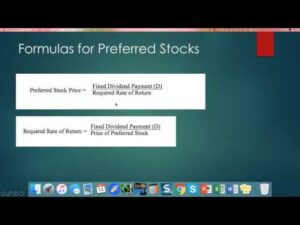Accounting 101 for Small Businesses
Лучшие Партнерские Программы Форекс Брокеров 2024 Года
26/02/2022Does Alcohol Weaken the Immune System? Yes, If You Drink Too Much
31/03/2022
Yes, you’ll need to determine how you want to manage your books, such as the do-it-yourself route, such as Excel spreadsheets, or use accounting software like QuickBooks. Alternatively, you can outsource your bookkeeping or hire a part-time bookkeeper. While you’re at it, you’ll be able to identify trouble what is inventory shrinkage spots and make adjustments to improve your business. Alternatively, as you set up your accounting software, you should see a list of optional financial accounts for you to add to your chart of accounts and general ledger.
- Strong accounting processes let you track your tax obligations and ensure you’re on-side with the CRA.
- Businesses consider receipts from sales of goods, bank account interest, payments made to vendors, and wages paid to employees as operating activities.
- If this is your first time exploring small business accounting, visit our helpful glossary to become familiar with basic accounting terms.
- Components of a cash flow statement include operating activities, investing activities, and financing activities.
Take stock of your inventory
If you’re using accounting software, the accounting cycle is automated, reducing the number of steps drastically. Now that you know the five main account types, you should begin to the carrying value of a long-term note payable is computed as: familiarize yourself with some other accounting basics. If you’re using accrual, or double-entry accounting, you will need to understand the accounting equation and debits and credits, which are the backbone of any accounting system.
It’s so important to understand where the money is going, so properly tracking your expenses will also help you to know the ins and outs of your costs.. It will also influence pricing strategies and can help you identify where you might be able to cut costs or where spending more could increase efficiency. This means if you complete a service or deliver a product, you record the income even if the customer hasn’t paid yet. Accountants love efficiency and can help you streamline your finance function and ensure it’s integrated with your other systems. You need to keep tabs on your business health from day one, and this only grows more crucial as more people get involved like investors and lenders.
Set up a small business payroll system
When you start a business, open a separate business bank account that will keep your business finances separate from your personal ones. Accounting for small businesses is done by keeping a complete record of all the income and expenses and accurately extracting financial information from business transactions. A user-friendly option for small business accounting, FreshBooks makes it easy to track income and expenses and includes a self-employed version just for you. However, working with a CPA offers many benefits for LLCs and corporations. CPAs can analyze bookkeeping records, help with payroll and taxes, offer financial consulting, and represent you during IRS audits.
Finally, you’ll need to file your annual tax returns for yourself and your business. For example, you’ll use your personal tax return, Form 1040, to report business income and expenses on Schedule C how amortization works: examples and explanation if you’re a sole proprietor. While accounting may not be what motivates you to go to work every day, it’s likely something you’ll encounter whether you do it yourself or outsource to an accounting firm. There are weekly, monthly, quarterly, and annual accounting tasks you need to complete to ensure your business’s success.
Adjusting entries are made for accrual of income and expenses, depreciation, allowances, deferrals and prepayments. If you’re still not sure what the difference is between a debit or a credit, and couldn’t tell an asset from a liability, accounting software can make your life a lot easier. However, their large size leads some small business owners to prefer smaller accounting firms that will not lose them among their larger clients. Smaller firms are generally much less expensive and can provide face-to-face service. Income statements, often referred to as profit and loss statements, summarize a small business’s revenues and expenses over a specific period. Examples of assets include real estate, inventory, cash, and accounts receivable.
Accounting 101 for Small Businesses
If you’re self-employed, you’ll pay self-employment taxes, which is a little different from small-business taxes and personal taxes. You can get more guidance on how to record and pay a small-business tax with your accounting software and tax professional. Once you’ve settled on an accounting method, it’s time to set up your books.
This is an inexpensive method, but will be limited in financial reporting, invoicing and its ability to integrate with other systems. The objectivity principle states that financial reporting should be based on objective evidence. Essentially, all financial statements should be free from bias, and all records should be supported by verifiable data. So while bookkeeping sets the stage, accounting elevates the performance, turning raw data into actionable insights. Together, they create a holistic financial picture that helps your business grow and comply with legal requirements. In a nutshell, small business accounting is the systematic process of recording, analyzing, and interpreting all financial transactions that occur within a small business.

Financial Analysis
Sage Business Cloud Accounting starts at $10/ month, but for complete accounting functionality, you’ll want to choose the full-service plan at $25/month. The majority of your financial transactions will have to do with income and expenses. Knowing how to handle these two items will ensure that your business runs smoothly.
From business startup to succession planning and the many steps in between, accountants can help your business throughout the entire journey. More than just number-crunchers, accountants use their expertise to forecast financial trends and advise on the future. They help business owners set realistic financial goals and create strategic plans to meet them.
